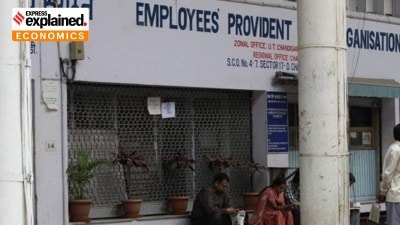Clear BSE8217;s mess, before its depository
How does the market regulator explain this? For more than a year now, SEBI has been demanding additional powers including those of search...

How does the market regulator explain this? For more than a year now, SEBI has been demanding additional powers including those of search and seizure; yet for four months it does not follow up the shocking findings of an independent audit report commissioned by it on the state of the BSE clearing house.
In the very same period, SEBI officials have been working overtime on clearing the Central Share Depository which is being set up by the BSE. If anything, the clearing house inspection, which coincided with the hastily hushed-up payment crises on the BSE in June should have prompted SEBI to order a complete clean up of the BSE8217;s systems before even considering its depository proposal.
SEBI may well argue that while the audit report by Aneja Associates The Indian Express, January 21 and 22 which revealed a virtual non-existence of systems and security at BOI Shareholding BOIS is four months old, the clearing house has since set its house in order 8212; that has simply not happened.
As recently as10 days ago, the clearing house was continuing to flout SEBI orders with impunity. For instance the clearing house had flouted the SEBI directive of January 4, that physical shares could not be delivered to the clearing house with respect to 12 scrips placed under compulsory paperless trading.
The number of physical shares delivered because of the laxity was so large, that by January 15 there was panic among office-bearers. At first the exchange toyed with the idea of blaming the companies for not dematerialising the shares in time and going to SEBI, asking for a no-delivery8217; period to be declared. However, saner counsel prevailed, when officials probably realised that such a charge would be difficult to prove. Brokers were then threatened with the auction of their shares if they did not immediately replace physical shares they had delivered with depository receipts. But this did not solve the problem either, because some brokers had probably been accommodated. The BSE finally decided to borrow sharesfrom vyaj badla financiers who possessed dematerialised stock in order to complete the payout.
It is possible that SEBI does not even know about the flouting of its directive and the cover-up, hence there is obviously no investigation into why the clearing house was accepting physical shares after January 4. The extent of borrowing from vyaj badla financiers and the quid pro quo for their help is also unknown.
This is not the first time that SEBI has been openly protective about the BSE8217;s shenanigans. Its investigation into the cover-up of the June crises and the late-night insertion of trades into the clearing house has not led to any action so far. Earlier, its own annual inspection report into the BSE remained buried for several months. After the report found its way into press, a watered-down but still negative version was finally circulated. Is it not curious that the adverse remarks in its own inspections have not even slowed the BSE8217;s ambitious plans to invest all its reserves in anexpensive depository? In fact, SEBI8217;s protection of BSE has eboldened the clearing house enormously. The independent inspection of the BOIS was ordered when it failed to deliver shares paid for by the Stock Holding Corporation of India SHCIL for weeks on end. In fact, at one stage, undelivered scrips had touched a high of Rs 148 crores, forcing financial institutions for whom SHCIL acts as a custodian to threaten to take away its business from the BSE. SHCIL then demanded interest on its money for the period during which clearing house had delayed delivery. The demand was made on behalf of UTI and all other financial institutions who are its clients. Astoundingly, the BSE clearing house has flatly turned down the demand saying that there is no claim tenable. SEBI is silent about this too.
Does this not beg an immediate comparison with the Hindustan Lever HLL insider trading case. In that case, SEBI awarded UTI compensation for notional losses which it had not even claimed. UTI was forced to file a claimin court arguing that it had to protect its investors8217; money. Isn8217;t it the same investors who lose because of the inadequacy of systems in the BSE clearing house? SEBI will either have to order the clearing house to pay SHCIL, or explain why the HLL insider trading case is different. SEBI8217;s selective regulation can prove expensive for the capital markets. As long as BSE remains inadequately regulated, SEBI cannot get tough with other exchanges. Thus, on the one hand, influential broker lobbies from these exchange manage to prevent the introduction of relatively safer and better regulated instruments such as derivatives. On the other hand they ensure that measures to reduce volatility such as uniform settlements are rejected out of hand by the stock exchanges. What can be more surprising than SEBI8217;s protection of BSE8217;s inefficiencies and mismanagement? Well, very simply making sure that a far more transparent, better-managed and efficient National Stock Exchange is pulled down to the level of BSE by demandingthat it inducts brokers on its board of directors!
The author8217;s e-mail address is: suchetadalalyahoo.com
- 01
- 02
- 03
- 04
- 05































